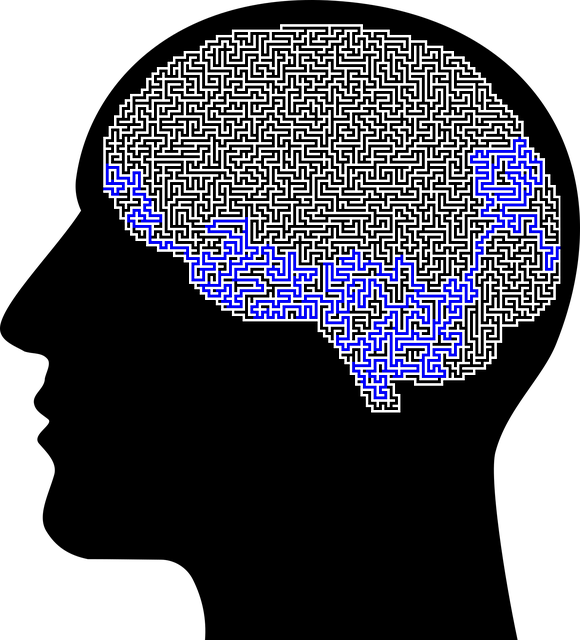Holistic mental health approaches treat mind, body, and spirit as interconnected, focusing on emotional well-being linked to physical health, lifestyle, and environment. Unlike traditional psychiatric treatments, these practices include diverse techniques such as mindfulness, yoga, acupuncture, herbal remedies, and nutrition counseling. Nature engagement is highly beneficial for healing and personal growth, offering tranquility from daily stressors. Cultivating a mind-body connection through activities like meditation, deep breathing, and nature walks enhances self-awareness and emotional regulation. Herbal medicine offers natural stress reducers and mood improvers, while mindfulness practices focus on present moment awareness. Energy healing modalities and yoga/movement therapies complement traditional medicine, promoting relaxation, mental clarity, and emotional equilibrium for improved overall well-being. Nature-based activities enhance mental health by providing calming effects and reconnecting individuals with their surroundings.
Discover the transformative power of natural therapy techniques for achieving holistic mental health. In today’s fast-paced world, reconnecting with nature offers a comprehensive approach to well-being. This article explores various practices, from herbal medicine and mindfulness to energy healing and yoga, all designed to nurture the mind-body connection. Uncover how engaging with the natural world can reduce stress, enhance healing, and promote mental clarity through evidence-based and ancient remedies.
Understanding Holistic Mental Health: A Comprehensive Approach

Holistic mental health is a comprehensive approach that considers the interconnectedness of the mind, body, and spirit. It recognizes that emotional well-being is deeply tied to physical health, lifestyle choices, and environmental factors. Unlike traditional psychiatric treatments that often focus solely on medication or therapy, holistic therapy techniques embrace a wide range of practices aimed at fostering overall balance and harmony.
This approach includes activities like mindfulness meditation, yoga, acupuncture, herbal remedies, and nutrition counseling. By addressing multiple aspects of an individual’s life, holistic mental health promotes sustainable healing and improved quality of life. It encourages individuals to take an active role in their well-being by making informed choices that support their mind, body, and spirit as a whole.
The Power of Nature in Healing and Therapy

Nature has always been a powerful healer, offering a sanctuary for both the mind and body. In the context of holistic mental health, connecting with the natural world can be transformative. Research suggests that spending time outdoors enhances mood, reduces stress, and improves overall well-being. Simply walking in green spaces or engaging in outdoor activities like gardening can have profound effects on mental clarity and emotional resilience.
The therapeutic benefits of nature are backed by science, as studies show a decrease in symptoms of anxiety and depression when individuals regularly participate in outdoor therapy sessions. This connection with the natural environment provides a sense of tranquility, allowing individuals to detach from daily stressors and foster a deeper sense of calm. By incorporating natural therapy techniques into holistic mental health practices, we can unlock a powerful resource for healing and personal growth.
Essential Techniques for Nurturing Mind-Body Connection

In the pursuit of holistic mental health, cultivating a deep mind-body connection is paramount. Techniques such as mindfulness meditation and yoga exemplify this union by encouraging individuals to focus on the present moment, attuning to both mental and physical cues. Regular practice can help reduce stress, enhance self-awareness, and promote a sense of calm, thereby fostering optimal psychological well-being.
Additionally, activities like deep breathing exercises, nature walks, and journaling create opportunities for introspection and reflection. These practices not only facilitate emotional regulation but also strengthen the mind-body connection by instilling a sense of grounding and inner peace. Embracing these holistic techniques can be transformative, enabling individuals to navigate life’s challenges with greater resilience and an enhanced appreciation for their interwoven mental and physical states.
Herbal Medicine and Plant-Based Remedies for Mental Wellbeing

Herbal medicine and plant-based remedies have been used for centuries as a key component of holistic mental health practices. These natural therapies offer a wide range of benefits, from reducing stress and anxiety to improving mood and cognitive function. Plants contain bioactive compounds that can interact with the body’s systems, influencing neurotransmitters and hormones associated with mental wellbeing. For instance, lavender is well-known for its calming effects, often used in aromatherapy to promote relaxation and improve sleep quality. Similarly, St. John’s wort has been studied extensively for its potential in managing mild to moderate depression.
Integrating herbal medicine into a holistic approach to mental health can provide individuals with more sustainable and gentle options for supporting their overall well-being. However, it’s crucial to note that while these remedies show promising results for many, they should be used in conjunction with other therapeutic methods and under the guidance of qualified practitioners, especially for those dealing with severe or chronic conditions.
Mindfulness Practices: Cultivating Present Moment Awareness

Mindfulness practices focus on cultivating present moment awareness, a key aspect of holistic mental health. By training the mind to remain focused on the now, rather than dwelling on the past or worrying about the future, individuals can reduce stress and anxiety. This simple yet powerful technique has been shown to improve overall well-being and enhance emotional resilience.
In today’s fast-paced world, where our minds are often caught up in a whirlwind of thoughts and distractions, mindfulness offers a sanctuary of calm. It encourages folks to embrace the present, observing their thoughts and feelings without judgment. This practice can be as simple as taking a few deep breaths and focusing on the sensation of air filling your lungs, or it might involve mindful walking, where each step is an opportunity to connect with the body and surroundings.
Energy Healing Modalities and Their Benefits

Energy healing modalities have gained prominence in the realm of holistic mental health, offering a non-invasive approach to well-being. These techniques tap into the body’s subtle energy systems, believing that imbalance or blockage in these fields can contribute to physical and emotional ailments. One such method is Reiki, where gentle touch is used to facilitate the flow of universal life force energy, promoting relaxation and self-healing. This process not only alleviates stress but also supports mental clarity and emotional equilibrium.
Other popular energy healing practices include Quantum Healing and EFT (Emotional Freedom Techniques), which focus on releasing traumatic memories and negative emotions trapped in the body. By addressing these stored energies, individuals can experience profound shifts in their mindset, leading to improved mental health and overall life satisfaction. These holistic approaches are becoming increasingly recognized as valuable complementary therapies alongside traditional medicine.
Yoga and Movement Therapies for Mental Clarity

Yoga and movement therapies offer powerful tools for cultivating mental clarity within the realm of holistic mental health. These ancient practices combine physical postures, breathing techniques, and mindfulness to promote a sense of balance and calm. By engaging in yoga or movement routines, individuals can enhance their ability to manage stress, improve focus, and boost overall well-being. The rhythmic movements and deliberate poses encourage a deeper connection between the mind and body, fostering mental clarity and emotional resilience.
In today’s fast-paced world, where hustle and bustle often prevails, these therapies provide an oasis of tranquility. They help individuals navigate through life’s challenges by offering moments of respite and self-care. Whether it’s a gentle stretch or an invigorating vinyasa flow, each movement is designed to unlock tension, stimulate circulation, and clear mental fog. Incorporating yoga and movement into one’s routine can be a game-changer for those seeking improved mental clarity within their holistic mental health journey.
Exploring Nature-Based Activities for Stress Reduction

In today’s fast-paced world, where stress and anxiety are prevalent, exploring nature-based activities offers a holistic approach to enhancing mental well-being. Being outdoors and engaging in natural environments can provide a calming effect, allowing individuals to reconnect with their surroundings and find solace from everyday pressures. Activities such as hiking, gardening, or simply sitting by a body of water can serve as powerful tools for stress reduction, promoting mindfulness and a sense of tranquility.
These nature-based techniques tap into the healing power of the outdoors, encouraging a peaceful mindset and fostering a deeper connection with the natural world. By immersing oneself in these settings, individuals can experience a shift in perspective, reduce symptoms of stress, and cultivate a greater appreciation for holistic mental health practices.
